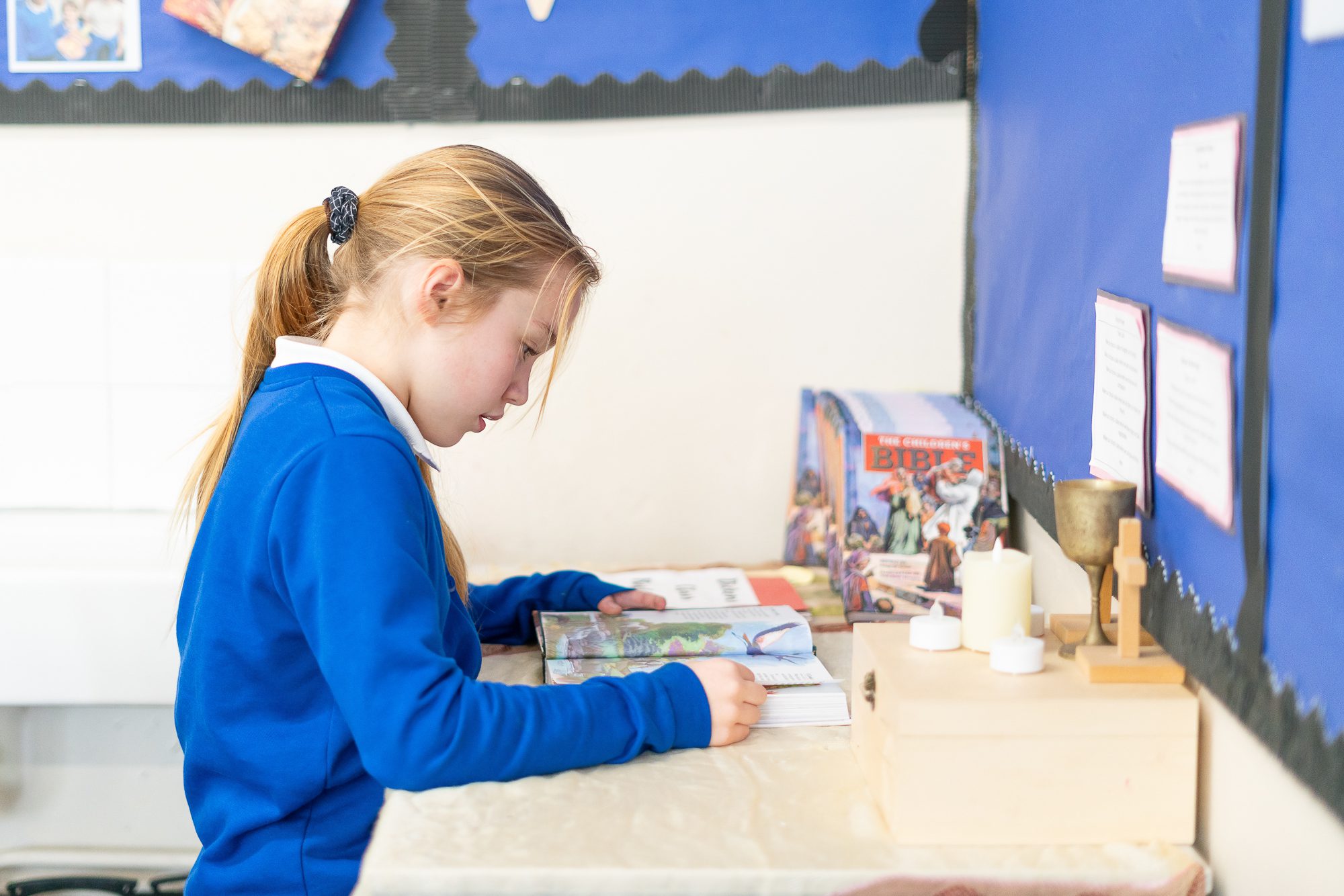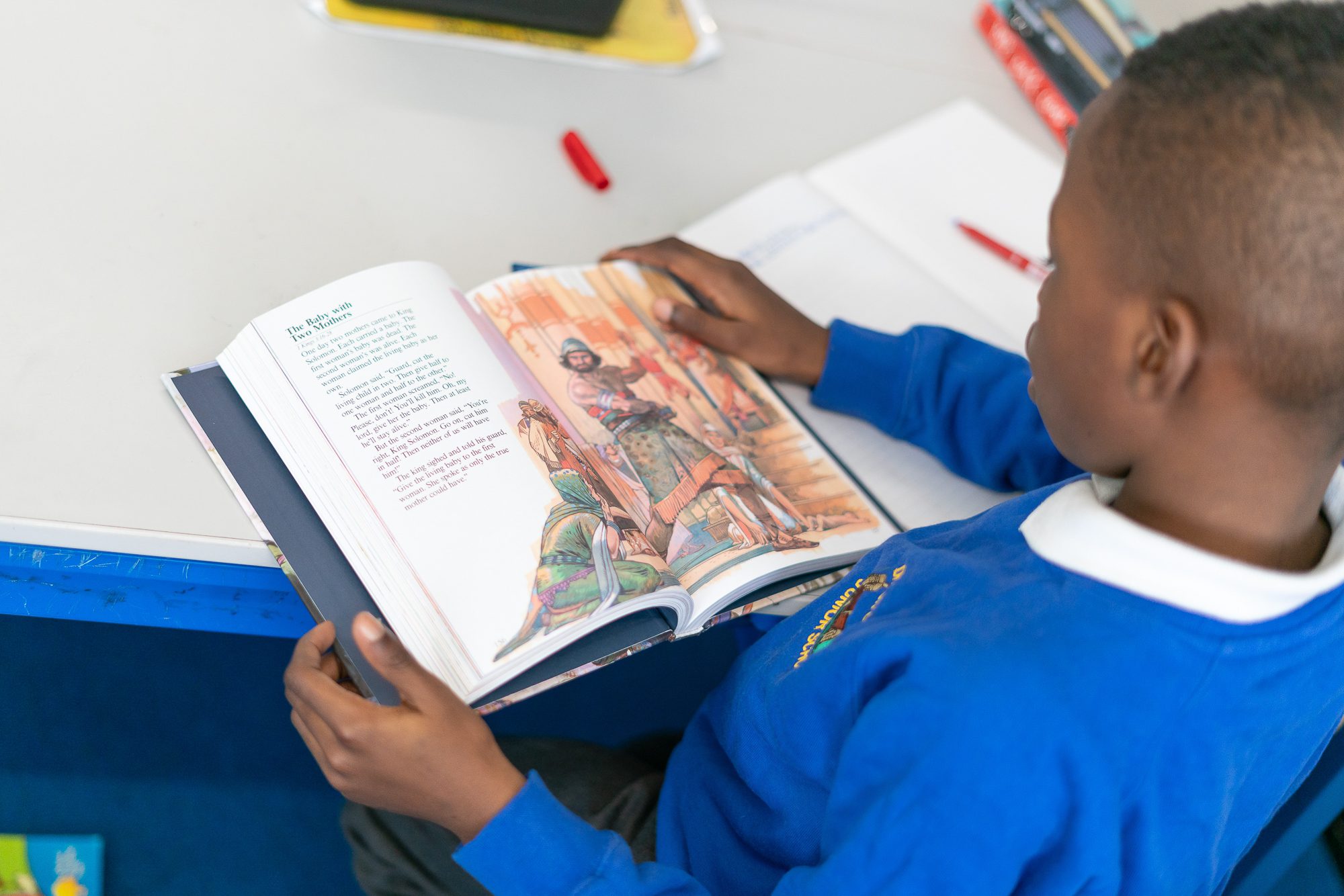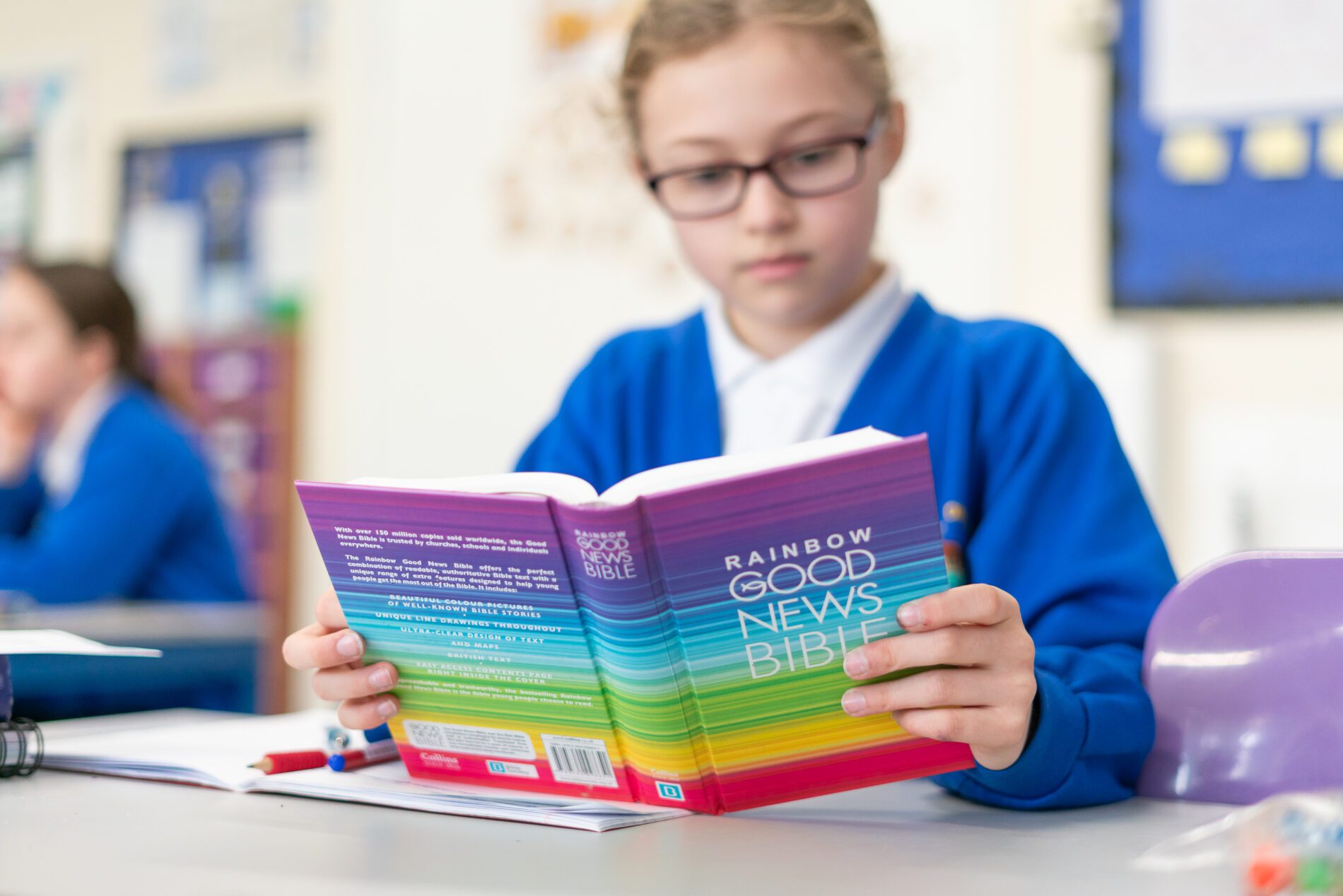Religious Education Subject Leader: Miss L Nazer / Mrs K Moon
Ditton Church of England Junior School will provide a high-quality Religious education curriculum that recognises and reflects all pupils’ beliefs and practices. Our curriculum is designed to reflect the guidance of the Kent Agreed syllabus. We aim to ensure that every pupil succeeds and develops a greater understanding of Religious Education and religious beliefs.
View our Religious Education Policy here
Intent
We aim to ensure that our Religious Education curriculum is challenging, dynamic and relevant to all pupils, giving them a better understanding of the world that they live in and how they live they live their lives in line with our school vision and values.
Religious Education and a ‘Christian Ethos’ is embedded throughout the school curriculum and everyday life at Ditton C of E Junior School with the focus on five core Christian values: Love, Compassion, Respect, Responsibility and perseverance.


Implementation
Our curriculum is based around the ‘Understanding Christianity’ programme, following guidance from Rochester Diocese. Each year group has a range of topics to cover within Christianity, as well as units of learning about other faiths. Understanding Christianity offers a coherent approach to teaching and learning about Christianity, in the wider RE curriculum.
Cultural Capital
At Ditton C of E Junior School we value opportunities to develop a broad and rich awareness of the world around us. In addition to learning about Christianity, pupils will learn about the principal religions represented in the UK, in line with the law. These are Sikhism (Year 3), Hinduism (Year 4), Islam (Year 5) and Buddhism (Year 6).
Impact
Through their R.E. learning, the children are able to:
- confidently give reasoned explanations of how and why the key Christian concepts studied, are related.
- to make links between their own lives and those of others in their community and in the wider world
- develop an understanding of other people’s cultures and ways of life
- give coherent accounts of the implications of biblical ideas and beliefs in the modern world (including local and global examples) and evaluate personally and impersonally how far these ideas help to make sense of the world.
- develop a religious vocabulary and interpret religious symbolism in a variety of forms
- reflect on questions of meaning, offering their own thoughtful and informed insights
- to explain the beliefs of major world religions and world views, their impact on society, culture, and the wider world, enabling them to express ideas and insights.

Religious Education Progression
SEND Information
Interventions, support, and challenges are constantly revised and adapted to ensure all children are supported in achieving learning. Learning is robustly and continuously monitored and assessed to ensure gaps in learning are addressed. Teachers and support staff offer adaptive teaching to enable access for all, and may provide scaffolds, pre-teaching, and other support and intervention, as outlined in the Kent Mainstream Core Standards. Pupils may also be supported to access learning through the use of Clicker software.

